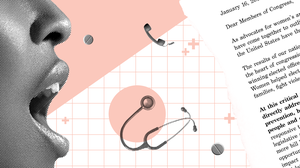Serious injuries can occur at any time and in any location. At the same time, getting injured while driving along the highway, at work, or even at início may result in legal or insurance claims if the injuries are substantial. On the other hand, getting the injured person and the insurance company to agree on the severity of the damage is nearly difficult.
Fortunately, engaging with a knowledgeable medical practitioner can answer these issues.
Here, we answer perguntas like what impairment rating is when it comes to impairment and why it’s essential to know.
Impairment and benefits
Even if they heal as much as possible, some injured personnel never fully recover to their pre-injury state.
An injured employee will most likely get freed from the physician's care once a work-related injury has healed as much as feasible and reached maximum medical improvement (MMI) as evaluated por the approved treating physician. It could happen even if the injured employee gets referred for other services like physical therapy, pain management, and possibly work hardening sessions.
Using the appropriate version of the American Medical Association Guides to the Evaluation of Permanent Impairment, the approved treating physician can issue a permanent rating.
The rating, in conjunction with other considerations, may be used to help calculate the amount of any permanent disability payments to which the injured employee is entitled.
Workers' compensation payouts are frequently provided based on the severity of the impairment. For example, for each percentage point of impairment between 1 and 10% on the link, the employee is entitled to two weeks of benefits.
On the other hand, for every percentage of impairment greater than 21%, the employee will be entitled to 6 weeks of benefits. Based on your final impairment assessment, almost every state provides a calculator to help you figure out what benefits you might be eligible for.
How are ratings for impairment determined?
Workplace injuries or diseases that cause lasting damage or can't get cured will lead to you reaching "maximum medical improvement," or MMI, at some point. Your workers' compensation case will get examined when you reach this milestone to see if you have any lasting disabilities.
After a physical examination and review of your medical records, doctors issue impairment scores, and your capacity to carry out routine daily tasks will also get assessed. Depending on your injuries, your range of motion, balance, lifting capacity, eyesight, and hearing may be examined. The doctor then assigns an "impairment rating" based on the standards.
As previously said, medical professionals employ the American Medical Association Guides to the Evaluation of Permanent Impairment, 5th edition, for consistency and fairness, unless the impairment is visual, in which case the 4th edition is used.
Your rating for impairment is critical because it determines whether or not you will be eligible for permanent partial disability (PPD) benefits and, if so, how much you will get.
In the case of the crushed finger, if the doctor concludes that you have lost 50% of its function, you will be awarded 50% of the maximum compensation authorized por law.
When are such ratings needed?
A medical rating is required whenever a worker has been injured for 104 weeks and receives benefits. A worker may not get all of the benefits and compensation to which she is entitled if she does not have a rating. Employers and insurers may not verify the extent of a worker's injury or whether the person can return to work without a rating.
Medical impairment ratings are essential in part of the long-term benefits claim process, and they can also be useful in the event of a disagreement. In circumstances where the amount of a worker's or claimant's harm is in question, they can be employed.
A medical rating of impairment might assist you in resolving an issue if you are concerned about fraud or if a dispute arises.
What is a good impairment rating?
As it is clear, impairment is a situation in which a worker cannot do the task assigned to him without problems. Hence, a rating of 0% is considered to be the best, as a worker with a 0% rating can do any task without any problems efficiently. So, getting know what is a good impairment rating will help you to identify the seriousness of your impairment.
To Conclude:
So, if you get injured at a worksite, it’s essential to schedule an appointment with one of the workers' compensation doctors now. The doctor will help you get a reasonable impairment rating for your workplace injury claim! Know mais about impairment rating visit link
Fortunately, engaging with a knowledgeable medical practitioner can answer these issues.
Here, we answer perguntas like what impairment rating is when it comes to impairment and why it’s essential to know.
Impairment and benefits
Even if they heal as much as possible, some injured personnel never fully recover to their pre-injury state.
An injured employee will most likely get freed from the physician's care once a work-related injury has healed as much as feasible and reached maximum medical improvement (MMI) as evaluated por the approved treating physician. It could happen even if the injured employee gets referred for other services like physical therapy, pain management, and possibly work hardening sessions.
Using the appropriate version of the American Medical Association Guides to the Evaluation of Permanent Impairment, the approved treating physician can issue a permanent rating.
The rating, in conjunction with other considerations, may be used to help calculate the amount of any permanent disability payments to which the injured employee is entitled.
Workers' compensation payouts are frequently provided based on the severity of the impairment. For example, for each percentage point of impairment between 1 and 10% on the link, the employee is entitled to two weeks of benefits.
On the other hand, for every percentage of impairment greater than 21%, the employee will be entitled to 6 weeks of benefits. Based on your final impairment assessment, almost every state provides a calculator to help you figure out what benefits you might be eligible for.
How are ratings for impairment determined?
Workplace injuries or diseases that cause lasting damage or can't get cured will lead to you reaching "maximum medical improvement," or MMI, at some point. Your workers' compensation case will get examined when you reach this milestone to see if you have any lasting disabilities.
After a physical examination and review of your medical records, doctors issue impairment scores, and your capacity to carry out routine daily tasks will also get assessed. Depending on your injuries, your range of motion, balance, lifting capacity, eyesight, and hearing may be examined. The doctor then assigns an "impairment rating" based on the standards.
As previously said, medical professionals employ the American Medical Association Guides to the Evaluation of Permanent Impairment, 5th edition, for consistency and fairness, unless the impairment is visual, in which case the 4th edition is used.
Your rating for impairment is critical because it determines whether or not you will be eligible for permanent partial disability (PPD) benefits and, if so, how much you will get.
In the case of the crushed finger, if the doctor concludes that you have lost 50% of its function, you will be awarded 50% of the maximum compensation authorized por law.
When are such ratings needed?
A medical rating is required whenever a worker has been injured for 104 weeks and receives benefits. A worker may not get all of the benefits and compensation to which she is entitled if she does not have a rating. Employers and insurers may not verify the extent of a worker's injury or whether the person can return to work without a rating.
Medical impairment ratings are essential in part of the long-term benefits claim process, and they can also be useful in the event of a disagreement. In circumstances where the amount of a worker's or claimant's harm is in question, they can be employed.
A medical rating of impairment might assist you in resolving an issue if you are concerned about fraud or if a dispute arises.
What is a good impairment rating?
As it is clear, impairment is a situation in which a worker cannot do the task assigned to him without problems. Hence, a rating of 0% is considered to be the best, as a worker with a 0% rating can do any task without any problems efficiently. So, getting know what is a good impairment rating will help you to identify the seriousness of your impairment.
To Conclude:
So, if you get injured at a worksite, it’s essential to schedule an appointment with one of the workers' compensation doctors now. The doctor will help you get a reasonable impairment rating for your workplace injury claim! Know mais about impairment rating visit link






















